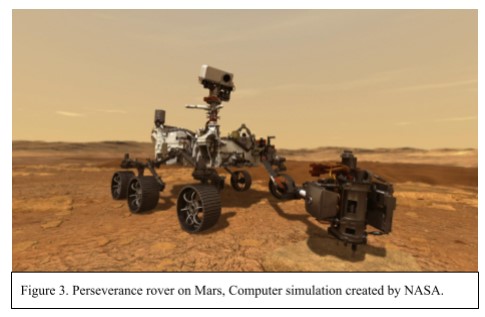How Anabaena can improve plant growth on Mars by acting as a biofertilizer
DOI:
https://doi.org/10.58445/rars.61Keywords:
Mars, Biofertilizer, Cyanobacteria, Anabaena, Martian colonization, NASA, Nitrogen fixation, Soil, sustainabilityAbstract
The human race has the need to explore and colonize as seen throughout history. Humanity has conquered land, sea, and sky. It's time for humanity's greatest mission to the next frontier as we plan to colonize Mars and make it a second home. Companies such as SpaceX, Blue Origin, and governmental agencies such as NASA are planning to conduct missions to colonize Mars by 2030. However, the colonization process is very difficult, expensive, and time consuming. The Martian surface is barren, cold, and dry making it impossible to grow crops on the surface (Gonçalves, 2021). Early Martian colonies will be completely reliant off of Earth for their resources. However, transport of goods from Earth to Mars takes about 7 months, this is a very costly endeavor, and can only be done every twenty six months when Earth and Mars are closest. For Mars to become a sufficient self sustaining colony there needs to be a way for the colonizers to make their own food. Martian soil is similar to Earth’s consisting of nitrogen, potassium, and phosphorus but the concentrations are too low to support any plant growth. Thus, Martian colonists must grow crops in controlled greenhouses. To help increase the nitrogen content in low nutrient Martian soil, cyanobacteria could be used to help. Cyanobacteria are ubiquitous photosynthetic microorganisms that can live in strenuous environments. Cyanobacteria, especially members of the genus Anabaena, are known to fix nitrogen, the process of converting atmospheric nitrogen into biologically available forms. If cyanobacteria are introduced into martian colonies for agricultural purposes, nutrient levels in soil could increase thus increasing crop yields on the planet. To test whether cyanobacteria can improve plant growth and increase nitrogen content in soil.

Downloads
Posted
Versions
- 2022-12-24 (4)
- 2022-12-24 (3)
- 2022-12-24 (2)
- 2022-11-15 (1)
Categories
License
Copyright (c) 2022 Ophelia Burden

This work is licensed under a Creative Commons Attribution-NonCommercial-NoDerivatives 4.0 International License.

